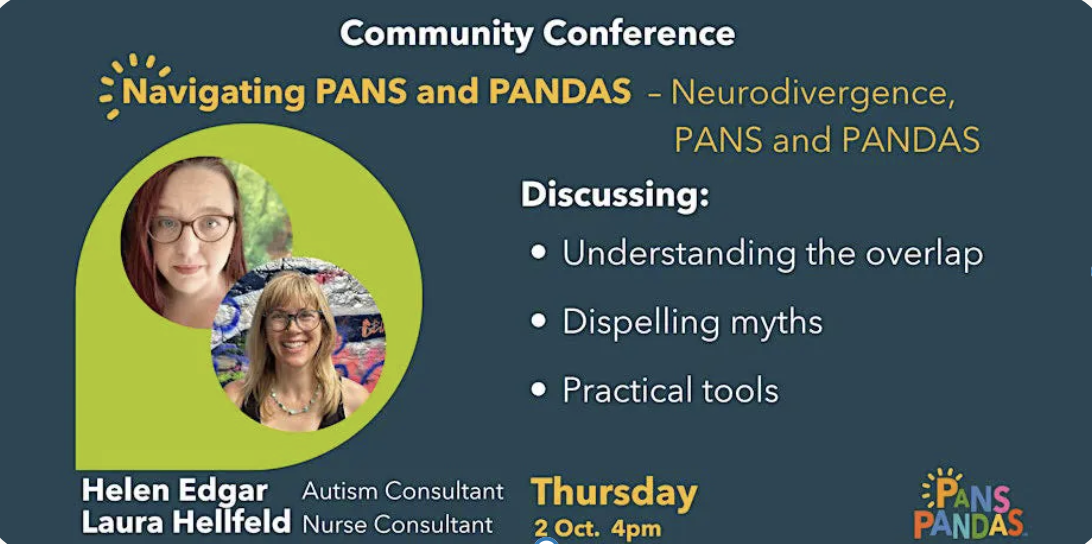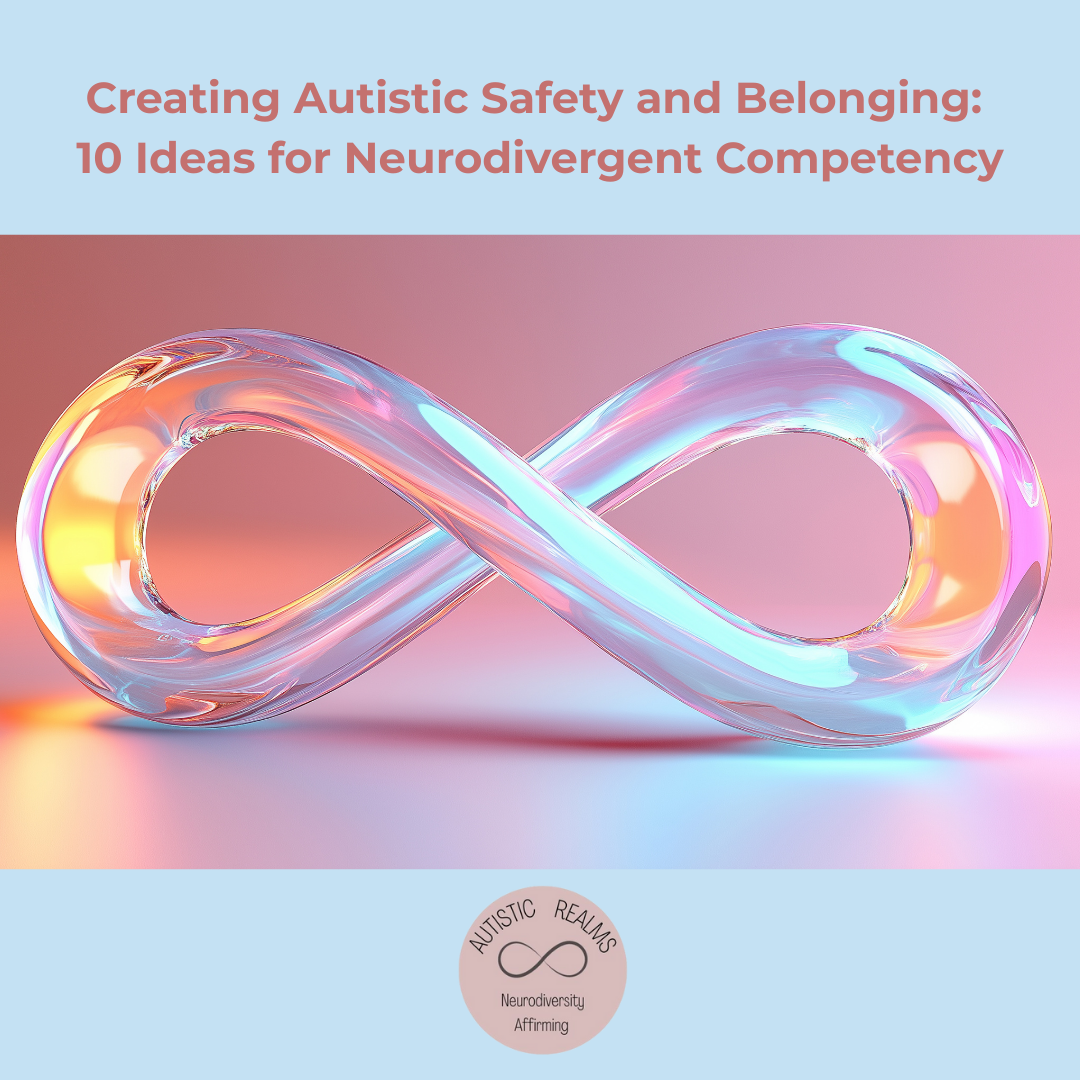Your basket is currently empty!
Category: Neurodiversity
-

Inclusion Needs Recognition, Not Erasure: A Neurodiversity-Affirming Approach
When headlines claim that autism and ADHD are “invented labels,” it’s more than rhetoric, it’s erasure. A explores why removing neurodiversity from education would harm the very children inclusion is meant to protect.
-

Navigating PANS/PANDAS & Neurodivergence
Our new PANS/PANDAS info-gathering templates help families, schools & clinicians understand the overlap between neurodivergence and PANS/PANDAS.
-

Protecting the Meaning of Neuro-Affirming Practice
Discover what genuine neuro-affirming practice looks like — beyond tokenism and “neurodiversity-lite.” Explore how to protect the heart of the neurodiversity movement and uphold its community-led roots.
-

Creating Autistic Safety and Belonging: 10 Ideas for Neurodivergent Competency
10 Principles of Neuro-Affirming Practice: Building Neurodivergent Competency Together
-

Beyond “Neurodiversity Lite”: Why Neurodiversity-Affirming Practice Matters
Explore the difference between true neurodiversity-affirming practice and “neurodiversity-lite,” and why justice, and lived experience matter.
-

From Autistic Realms to More Realms: Exploring Other Ways of Being
Journey from Autistic Realms into More Realms—where neuro-affirming support meets creative, sensory, and neuroqueer explorations of other ways of being.
-

Neurodiversity Affirming Reading Recommendations
Looking for neurodiversity-affirming reads? I’ve have a growing collection of books listed by autistic authors, advocates, and researchers. Perfect for parents, professionals, and curious minds alike. Explore stories that affirm, not fix. Neurodivergent voices centred. From education to identity, burnout to belonging.
-

Weird Pride and Being Weird
Weird Pride Day: Why Be Normal When You Can Be You? Every day can be a Weird Pride day if you are weird, but we also hold an annual event on 4th March. Weird Pride Day is a day for “people to embrace their weirdness, and reject the stigma associated with being weird. To publicly…
-

What does ‘neuro-affirming’ mean for Autistic young people?
This blog was written by myself, Helen Edgar of @autisticrealms for GROVE. I am delighted to work with Grove Neurodivergent Mentoring and Education as their Training, Education & Resource Specialist. This blog was edited by Jess Garner, GROVE’sFounder/Director. The blog, ‘What does ‘neuro-affirming’ mean for Autistic young people?’ is available to read on GROVE’s website, along with many other resources and information…
-

Radical Resilience
Image of pink flower growing between gaps in pavement. Text:Wild flowers offer hope. Be radically resilient. Find possibilities in-between hard spaces. Be authentic and flourish in adversity. Transform the landscape. Be a wild flower.
-

Neurodivergent Base-Camp
Explaining what it is like to be autistic to non-autistic people can be difficult. To quote Dawn Prince-Hughes (Cultural Autism Studies at Yale), being autistic is like “being human without the skin”. This can be difficult for non-autistic people to understand. Seeing and feeling the blank looks and Double Empathy Problem (Milton, 2012) at a…
-

The Double Empathy Problem is DEEP
“The growing cracks in the thin veneer of our “civilised” economic and social operating model are impossible to ignore”, Jorn Bettin (2021). The double empathy problem (Milton, 2012) creates a gap of disconnect experienced between people due to misunderstood shared lived experiences. It is “a breakdown in reciprocity and mutual understanding that can happen between people…
-

Top 5 Neurodivergent-Informed Strategies
Top 5 Neurodivergent-Informed Strategies By Helen Edgar, Autistic Realms, June 2024. 1. Be Kind Take time to listen and be with people in meaningful ways to help bridge the Double Empathy Problem (Milton, 2012). Be embodied and listen not only to people’s words but also to their bodies and sensory systems. Be responsive to people’s…
-

An unlearing and relearning journey.
Hello! I have never done an introduction post for Autistic Realms, so after 18 months and some one kindly nominating me for the Positive Role Model Award as part of the National Diversity Awards and receiving so much lovely feedback, I thought I would share a bit about myself! I am Helen Edgar, late identified…
-

Neurodiversity Affirming Glossary of Key Words – for families and professionals
(Glossary written & and originally published for THE PDA SPACE SUMMIT 2023 ) A full version of The Neurdodiversity Affirming Glossary is now available on Amazon. This blog is an abbreviated version created for The PDA Space. Language Matters It can be really hard as a parent/carer when you discover that your children are…















